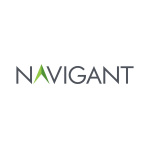EHRs and Consumer Self-Pay Remain Top Revenue Cycle Challenges for Hospital and Health System Executives

Navigant survey conducted by HFMA shows IT budgets growing as providers focus on revenue integrity, robotic process automation, and external collaboration for revenue cycle improvements
CHICAGO–(BUSINESS WIRE)–$NCI–More than 60% of providers struggle to derive optimal value from their electronic health records (EHRs), and 85% believe the increase in consumer self-pay will continue to impact their organizations, a Navigant (NYSE: NCI) analysis based on an executive survey conducted by Healthcare Financial Management Association (HFMA) finds.
According to the survey of 108 hospital and health system chief financial officers and revenue cycle executives, 62% suggest EHR adoption challenges have been equal to or outweighed benefits specific to their organization’s revenue cycle performance, up from 56% in 2018. In addition, more than half of executives say their organizations can’t keep up with EHR upgrades or underuse available EHR functions.
Consumer self-pay concerns also persist for provider executives. Eighty-five percent of respondents – including all large hospital executives – believe the increase in consumer responsibility for healthcare costs will continue to affect their organizations, up from 81% last year but down from 92% in 2017.
In an ongoing effort to better manage these challenges, 69% of executives predict their organization’s IT budgets will increase over the next year, up from 68% last year but below 74% in 2017.
Improving revenue cycle performance
When asked which strategies they’ve already implemented to successfully decrease revenue cycle costs and increase economies of scale, 46% of executives selected collaboration with external entities, including outsourcing and vendor partnerships. In addition, one-in-four of both health system and large provider executives cited advanced health IT, including robotic process automation (RPA).
“It was anticipated that EHRs would be the main driver of broad performance improvement, but that has not occurred in many cases,” said Timothy Kinney, managing director at Navigant. “Instead, providers are now taking other steps, including looking outside their organizations to collaborate with external entities and leveraging advanced technology solutions, and they’re seeing successes.”
Executives also suggest their organizations have implemented solutions to better engage consumers on healthcare costs, offering comprehensive financial counseling and payment plans (40%) and online portals for price estimates and payment (32%).
Integrating revenue cycle operations with clinical operations is an area where providers aren’t seeing enough success – just 3% of respondents feel their organizations have been entirely successful at doing so.
Continued focus on IT capabilities
Moving forward, the majority of executives (87%) again suggest they’re most focused on technology-related capabilities to drive future revenue cycle improvements. Revenue integrity was the top area of focus for the third straight year, cited by 28% of executives, a 21% increase from 2017. Furthermore, RPA saw a major jump among health system executives – 15% cited the capability, which wasn’t selected by any health system executive in 2018.
“New technologies leveraging RPA, artificial intelligence, and machine learning have unlocked significant opportunities to reach previously unattainable levels of revenue cycle performance,” said Navigant Director Kent Ritter. “As we’ve learned with EHR implementations, there are no silver bullets. These tools are not ‘plug and play,’ and the ability to integrate operational and technical expertise remains key to provider success.”
Navigant’s Healthcare segment is comprised of consultants, former provider administrators, clinicians, and other experts with decades of strategy, operational/clinical consulting, managed services, revenue cycle management, and outsourcing experience. Professionals collaborate with hospitals and health systems, physician enterprises, payers, government, and life sciences entities, providing strategic, performance improvement, and business process management solutions that help them meet quality and financial goals.
About Navigant
Navigant Consulting, Inc. (NYSE: NCI) is a specialized, global professional services firm that helps clients take control of their future. Navigant’s professionals apply deep industry knowledge, substantive technical expertise, and an enterprising approach to help clients build, manage, and/or protect their business interests. With a focus on markets and clients facing transformational change and significant regulatory or legal pressures, the firm primarily serves clients in the healthcare, energy, and financial services industries. Across a range of advisory, consulting, outsourcing, and technology/analytics services, Navigant’s practitioners bring sharp insight that pinpoints opportunities and delivers powerful results. More information about Navigant can be found at navigant.com.
Contacts
Kyle Bland
Navigant Investor Relations
312.573.5624
kyle.bland@navigant.com
Alven Weil
Navigant
704.995.5607
alven.weil@navigant.com
